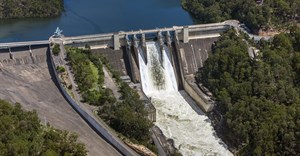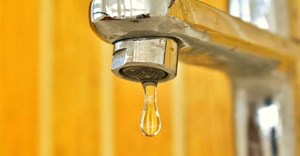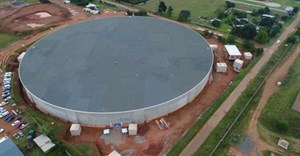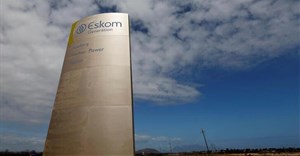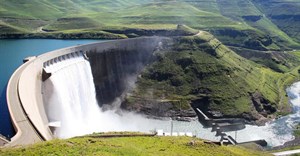Complementing and offsetting energy opportunities for the South African water sector
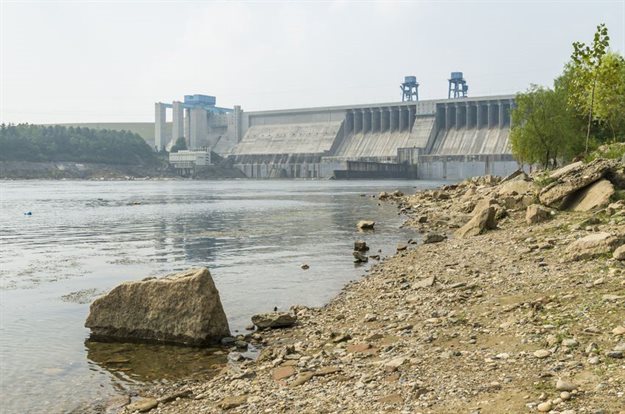
Prioritising energy generation opportunities
The current energy supply challenges have accelerated the need to diversify the energy mix to include various forms of renewable energy. In this regard, there is need to prioritise energy generation opportunities presented by the South African water sector to minimise the impact of current energy supply challenges in the sector. The energy supply challenges therefore need to be considered an opportunity to place energy generation and efficiency at the forefront to use wastewaters generated by industry and municipalities as a cheap resource to generate energy. Furthermore, generating energy from water and wastewater has the potential to change the economics of the water sector from being consumption-based without economic payback to one that generates income. Thus, if managed correctly “energy from water and wastewater” could also contribute to a more diversified and sustainable energy platform for South Africa through the introduction of various renewable energy options and use of various resources such as wastewater to supplement the energy generation grid.
Research studies have identified sewage, animal husbandry wastewaters, and food and beverage processing wastewaters as the major classes of wastewaters with the greatest potential for energy recovery, with an estimated 10,000MW recoverable from these wastewaters in South Africa, representing approximately 7% of the national energy distributor electrical power supply. These estimated energy values therefore suggest the need for on-site smaller energy generation operations which can ultimately remove demand from the national grid.
Biogas from anaerobic digestion
The most implemented technology for wastewater sludge management in the South African wastewater services sector also applied widely internationally at various scales is conventional anaerobic digestion. This generates biogas used to heat up the anaerobic digesters when required with the remaining biogas currently flared. This practice has been typical in South Africa since it is often easier to flare the gas than acquire the required CAPEX funding for the combined heat and power turbines to generate both heat and electricity. However, over the past few years, there has been a significant paradigm shift in approach by South African Water Services Authorities following international trends to optimally generate and utilise biogas from anaerobic digestion of sewage sludge. In this regard, studies have estimated biogas production to be 281,000m3/day, translating to electrical energy of 658,000kWh/day with an estimated saving (at 60c per kWh electricity) of R144m per annum and Water Services Authorities can position themselves to benefit from such an opportunity.
Recent studies have further shown that emerging innovations that generate multi-use hydrochar including a green biofuel have significant potential for implementation within the South African waste sector. The green biofuel with an additional 3–5GJ of energy for every tonne produced have further benefits in that it can be mixed with coal to lower the overall carbon intensity of existing coal-burning facilities. Alternatively, the biofuel can replace the use of coal resulting in significant reduction of GHG emissions in support of the Kyoto Protocol and climate change mitigation.
Besides existing biogas production opportunities from wastewaters, the existence of large quantities of raw and potable water conveyed daily under either pressurised or gravity conditions over long distances and elevations presents more opportunities for localised hydropower generation within water services. In this regard, there are about 284 municipalities and several water supply utilities owning and operating gravity water supply distribution systems which could be considered for small scale conduit hydropower installations. Most of these water supply/distribution systems can be equipped with turbines or pumps as turbines for on-site generation including supply to isolated electricity demand clusters, including feeding into the national grid.
Hydroelectric potential
In this regard, several water supply utilities in South Africa and metropolitan municipal water supply systems with the configuration comprising a gravity pipeline connecting two reservoirs are suitable for the conduit hydropower installation. For instance, it has been determined that among the 58 service reservoirs for Rand Water, a firm hydroelectric potential of 15MW exists, with a further 50MW of capacity hidden within the utility’s water supply and distribution systems. Another example is the City of Tshwane with an estimated capacity of 1MW, based on its large water system that includes 160 reservoirs, 42 water towers, 10,677km of pipes and more than 260 pressure reducing installations. A typical example of successful implementation is the Bloem Water Utility where a 96kW hydropower plant at the Brandkop reservoir currently supplies the utility head office with renewable energy.
While power utility Eskom will remain the primary energy supplier, the water sector has significant opportunities to complement energy supply and offset demand on the national grid. This can therefore promote a more diversified energy platform in South Africa. Moreover, the use of water and wastewater as a renewable energy resource improves energy security while reducing the environmental burdens of waste disposal. Furthermore, energy from water and wastewater can facilitate the integration of water, waste and energy management within a model of sustainable development. Therefore, there is urgent need for the water sector to harness existing innovations and approaches to exploit the current energy opportunities within water and wastewater services for the benefit of improved service delivery.









